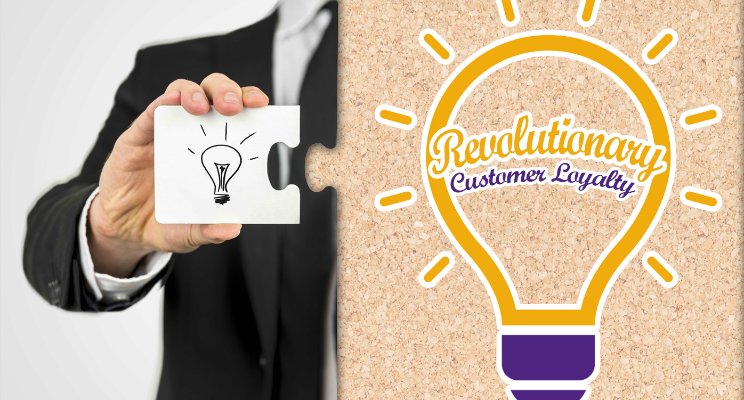Customers are not loyal because of the Customer Experience you provide. They are loyal because of the Customer Experience they remember you provided. Furthermore, customers don’t remember the entire experience but only bits and pieces. It is important to get these memorable bits right, or your customer loyalty will certainly go to pieces.
The human memory isn’t as reliable as we would like to think. Don’t believe me? Try this: explain the Pythagorean theorem right now without Googling it. For all but a small majority comprised of middle and high school math teachers and well, “math people”, you didn’t remember, did you?
Okay…that was a bit of an unfair question because unless you use Euclidian geometry every day, you wouldn’t remember it. Let’s try something more mundane: what items did you buy at the market last Tuesday and how much did they cost? Stumped again? I’d be surprised if you weren’t. The chances are high that you don’t remember all of the details, particularly if it was uneventful.
The memory concept is one of the imperatives I explain in my new book with Professor Ryan Hamilton of Emory University. Our book The Intuitive Customer: 7 imperatives for moving your Customer Experience to the next level, examines how memories are key to customer loyalty and includes the following imperative:
Imperative 7: Realize that the only way to build customer loyalty is through customers’ memories
Understanding how memories form is important to fostering customer loyalty and retention. According to new research from Texas A&M University, your brain remembers things based on the strength of the stimulation. The stimulation, in this case, is the neurotransmitters or chemicals that allow the signals to transmit between your synaptic connections. The stronger the stimulation, then the stronger the memory.
Guess what causes the strongest stimulations? Strong emotions. Consider a happy moment in your life. Were you feeling a strong positive emotion at the time? Now, consider a sad moment. Was it the result of a strong negative emotion? These emotions sent a lot of stimulation to our synapses, hence the positive or negative memory you refer to now.
Remember when I stumped you asking about the store trip last Tuesday? You don’t remember all the items you bought last Tuesday because there likely wasn’t a strong emotion attached to them. If you purchased something you were excited about, you might remember that one item and forget the rest.
You might also remember a moment in the experience associated with a strong emotion. Maybe you waited longer than usual to check out, or maybe you remember when you dropped your carton of blueberries, one of the employees ran to get you a new one. These moments likely caused strong emotions, e.g. frustration or gratitude, respectively, and so you remember the experience in respect to that emotion.
Ensuring Excellent Experiences with Empathy and Empowerment
Ensuring that the customer’s memory is a good one is a necessary skill for your customer-facing employees that also moves your Customer Experience to the next level. However, we find two common problems:
- Few organizations train employees to manage the emotional aspects of a customer interaction.
- Employees do not know how to target a particular emotional outcome that creates a positive memory of the experience that drives value for an organization.
In our Customer Experience Consultancy, Beyond Philosophy, we emphasize teaching customer-facing employees to recognize people’s emotions and manage them to a better emotional outcome. It requires skills training in empathy and designing policies favoring employee empowerment. Empathy training shows employees the verbal and nonverbal communication customer’s use and how to acknowledge it. Empowerment gives them the ability to change the current emotional state, which can range from the right words to say to the authority to replace the product or issue a refund for problem resolution.
For example, if the customer is upset about the fact their product doesn’t work, we teach the customer-facing employee to acknowledge that they can understand the customer’s frustration (empathy), and then issue a replacement or refund to solve the problem (empowerment).
The memory your experience creates inspires customer loyalty. Strong emotions create lasting memories. Positive feelings create a lasting positive memory of your experience. If the customer-facing person recognizes what the emotional state of the experience is currently, they can shepherd it to the positive zone, a skill in which too few employees are trained. However, with training in empathy and a little bit of empowerment, your team can create the kind of memories of which customer loyalty is made.
Is customer loyalty a function of experience or memory? I’d be interested to hear what you think in the comments below.
To learn more about these fascinating and compelling concepts for yourself and business, please register for our latest book and FREE book launch webinar: The Intuitive Customer: 7 Imperatives for moving your Customer Experience to the next level (Palgrave Macmillan, 2016).
If you enjoyed this post, you might be interested in the following blogs:
Why the Customer Experience Doesn’t Create Loyalty
‘Top 50 Marketing Thought Leader’ Reveals Latest Trend
Why Your Memory Matters More Than Your Experience
Colin Shaw is the founder and CEO of Beyond Philosophy, one of the world’s leading Customer experience consultancy & training organizations. Colin is an international author of five bestselling books and an engaging keynote speaker.
Follow Colin Shaw on Twitter @ColinShaw_CX


